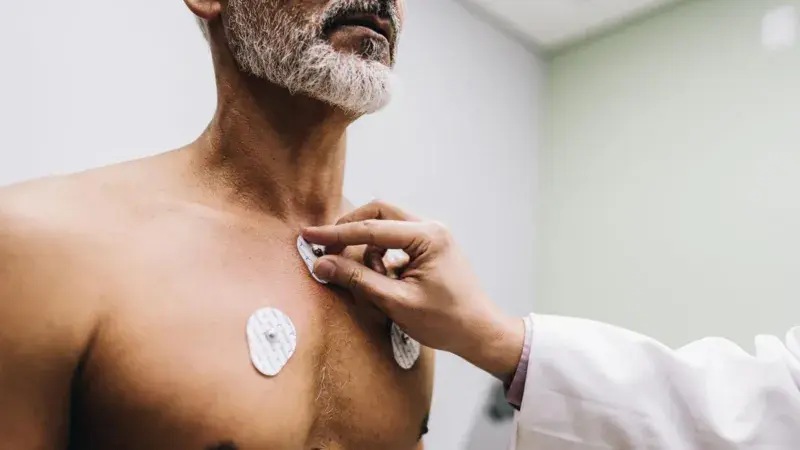AI Breakthrough: Hospitals Trial Technology to Predict Type 2 Diabetes Years in Advance
- V. E. K. Madhushani

- Dec 26, 2024
- 3 min read
Kawshalya Madhushani Jadetimes Staff
V.E.K. Madhushani is a Jadetimes news reporter covering Innovation.

Revolutionizing Early Detection: AI System Tested to Identify Diabetes Risk
Two NHS hospital trusts in London have embarked on a pioneering project to explore whether artificial intelligence (AI) can predict the onset of type 2 diabetes up to a decade before symptoms appear. Imperial College and Chelsea and Westminster hospital NHS foundation trusts are training an advanced AI system, Aire-DM, to analyze subtle indicators from ECG heart traces that could signal early risk of the condition.
This groundbreaking trial has the potential to reshape early diabetes detection and prevention strategies.
How AI Detects Diabetes Risk Through ECG
Aire-DM analyzes ECG (electrocardiogram) readings, which capture the electrical activity of the heart, including its rate and rhythm. While highly skilled doctors can spot overt abnormalities, the system’s strength lies in identifying patterns too subtle or complex for the human eye to detect.
“It’s not about one specific detail in the ECG,” explains lead researcher Dr. Fu Siong Ng. “The AI examines a combination of subtle changes that collectively indicate potential risk.”
The system’s accuracy in early tests has been promising, identifying risk in about 70% of cases. Its predictive power increases when supplemented with additional data such as the patient’s age, sex, weight, and existing conditions like high blood pressure.
The Clinical Trial and Its Implications
Up to 1,000 patients at the two NHS trusts will participate in the trial, allowing Aire-DM to analyze their ECGs and assess its predictive capabilities. While not yet available for routine use, the researchers are optimistic that this technology could eventually be implemented across the NHS. However, widespread rollout is likely at least five years away, according to Dr. Ng.
The British Heart Foundation, which is funding the project, emphasizes the potential for this technology to save lives. By identifying individuals at risk, interventions such as lifestyle changes could prevent serious complications, including heart attacks and strokes.
“This research showcases how AI can uncover patterns in routinely collected health data that are invisible to human observers,” says Professor Bryan Williams, Chief Scientific and Medical Officer at the British Heart Foundation. “It has the potential to be a gamechanger in predicting and preventing type 2 diabetes.”
Why Early Detection Matters
Type 2 diabetes often remains undiagnosed for years, posing significant risks to patients’ health. Around 1.2 million people in England are estimated to be unaware they have the condition, with millions more at high risk of developing it.
Dr. Faye Riley from Diabetes UK highlights the significance of early detection: “AI-powered screening methods offer a promising way to identify those at risk well in advance, allowing them to access support to prevent complications such as heart failure and sight loss.”
Understanding Type 2 Diabetes
Type 2 diabetes is a condition where blood sugar levels become too high due to the body’s inability to produce enough insulin or use it effectively. Excess weight can exacerbate the problem, as fat buildup around the pancreas can impair its ability to produce insulin.
Unlike type 1 diabetes, which is an autoimmune disease, type 2 diabetes is often preventable. Maintaining a healthy diet, exercising regularly, and managing weight are critical to reducing risk.
The Road Ahead
With clinical trials scheduled for 2025, Aire-DM could pave the way for transformative advancements in diabetes prevention and care. Researchers and healthcare leaders eagerly await further results, hoping to integrate this technology into routine practice to benefit millions at risk.
As the fight against type 2 diabetes continues, innovations like Aire-DM provide a promising glimpse into the future of predictive and preventative medicine.










































תגובות